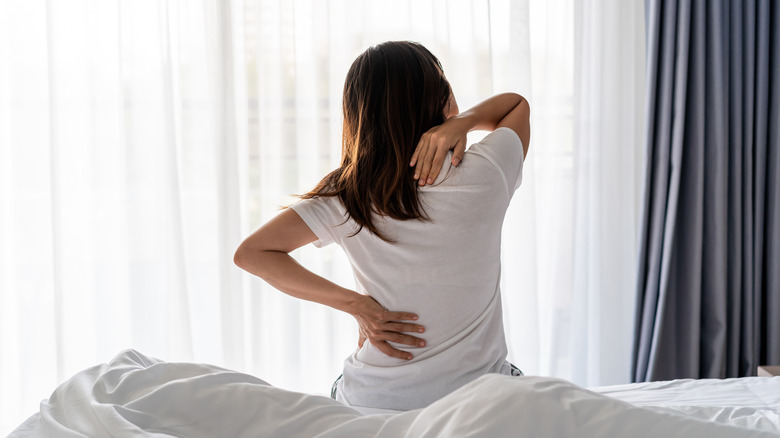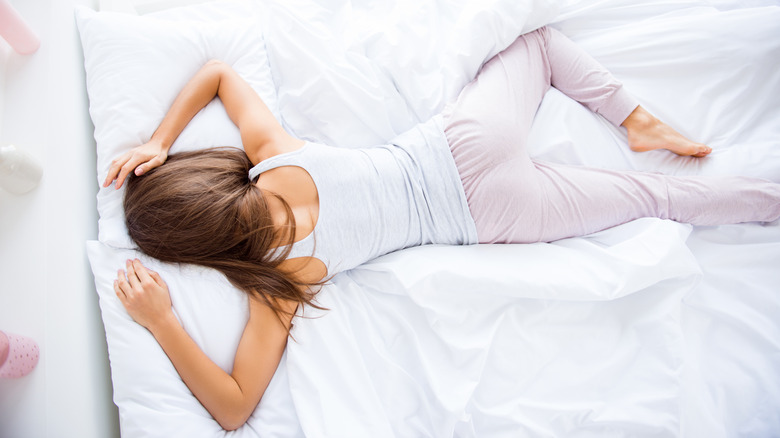This Is The Worst Sleeping Position For Your Back
Falling into a comfortable, warm bed at the end of a long day is one of life's great pleasures. But how you feel getting up in the morning depends not only on how many hours you sleep (hopefully you're getting the recommended seven to nine hours per night!) but also on what position you're sleeping in.
Sleeping in the wrong position can really undo many of the benefits of a good night's sleep. James Leinhardt, CEO and Sleep Posture Expert at Levitex, warns "Just because [a position is] comfortable doesn't mean it's good for you. The way you position your body at night could be doing you no favours – and might well be causing you more long-term impacts than you realise" (via Metro).
If you're a side or back sleeper, congratulations! Sleep experts are divided on which of these two positions is actually the best for your back, but both can be good options so long as the spine is kept in a neutral position. Back-sleeping may be helpful for those dealing with sinus problems, and, depending on your body type, either of these positions may help reduce joint and back pain (via Best Life).
Stomach-sleeping can lead to serious problems down the road
Sleeping on your back allows your body weight to be evenly distributed, and, according to Healthline, may even help relieve tension headaches and chronic conditions by relieving pressure on specific points on the body.
But if you're a stomach-sleeper, the news is grim — that is hands-down the worst position for sleeping. This position doesn't allow for a healthy spinal alignment, which can lead to strain. Stomach-sleeping also forces you to turn your neck sharply to the side, which can contribute to neck or upper-back pain in the morning, per Sleep Foundation. It also carries an aesthetic drawback – the pressure of having your face smashed into a pillow all night can, over time, lead to wrinkles.
The takeaway? If you're used to sleeping on your stomach, it's time to make a conscious effort to switch to a more spine-friendly position. Your back – and your face – will thank you in the long run.


